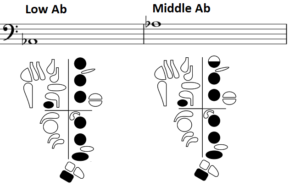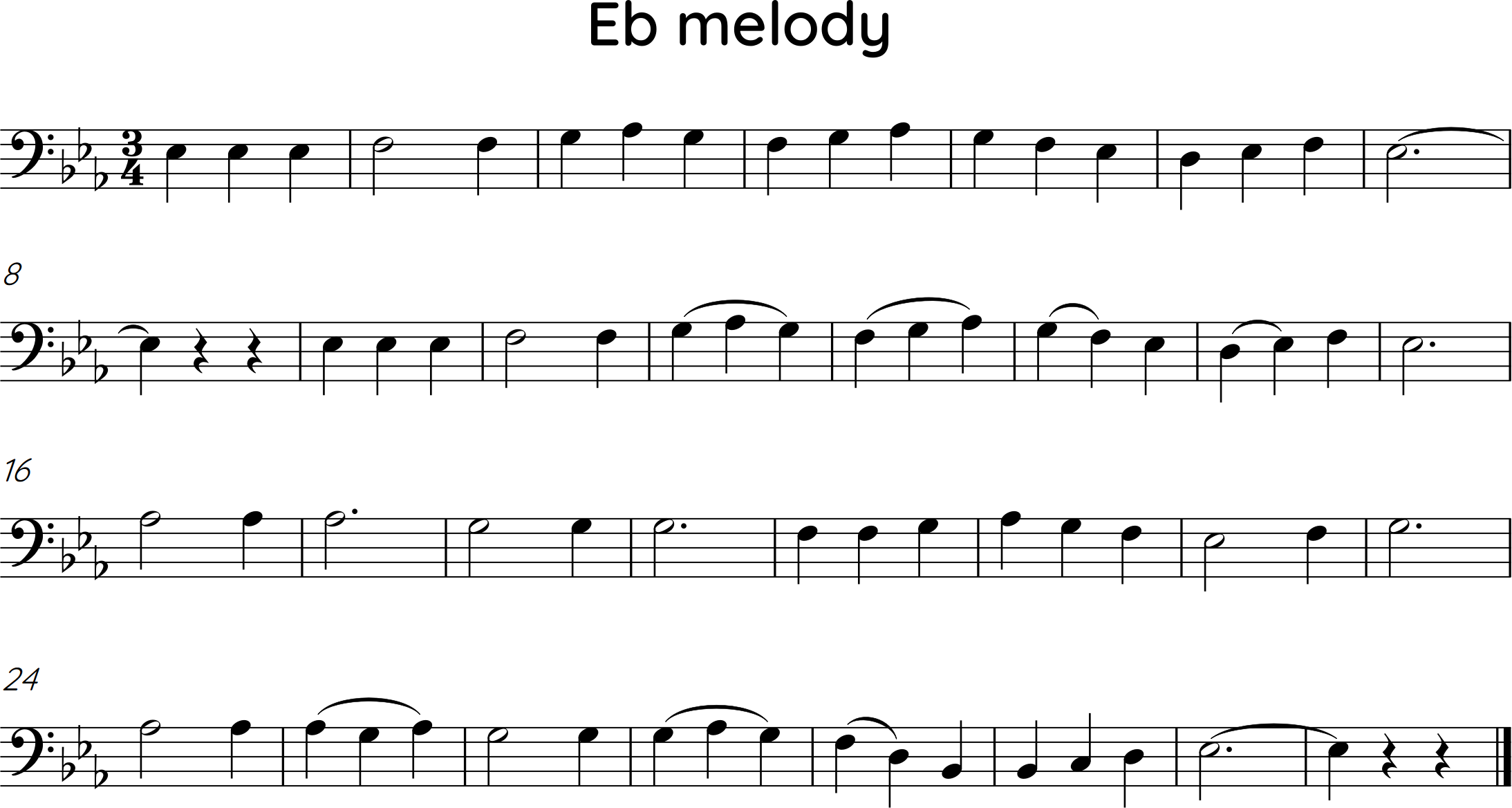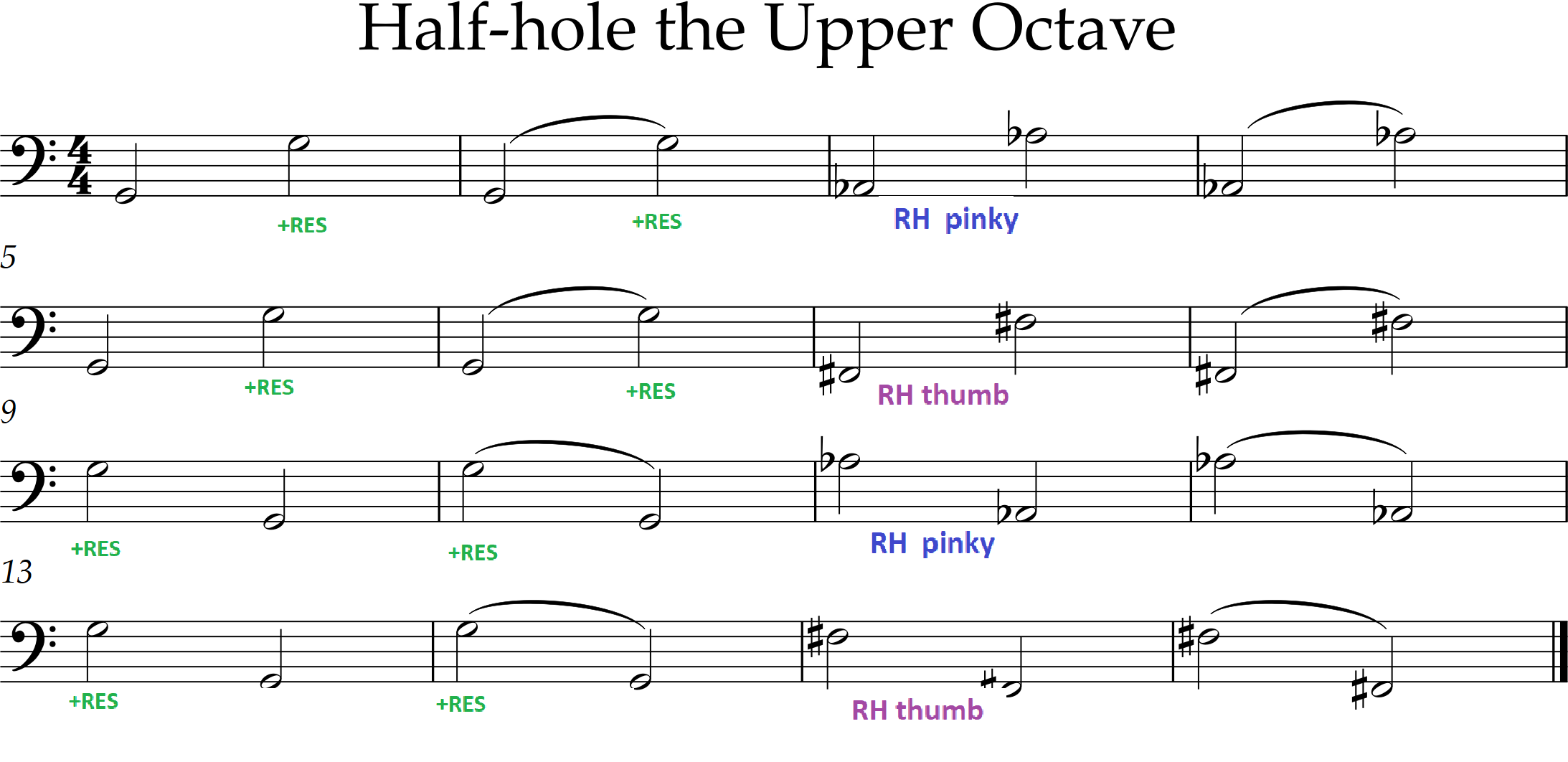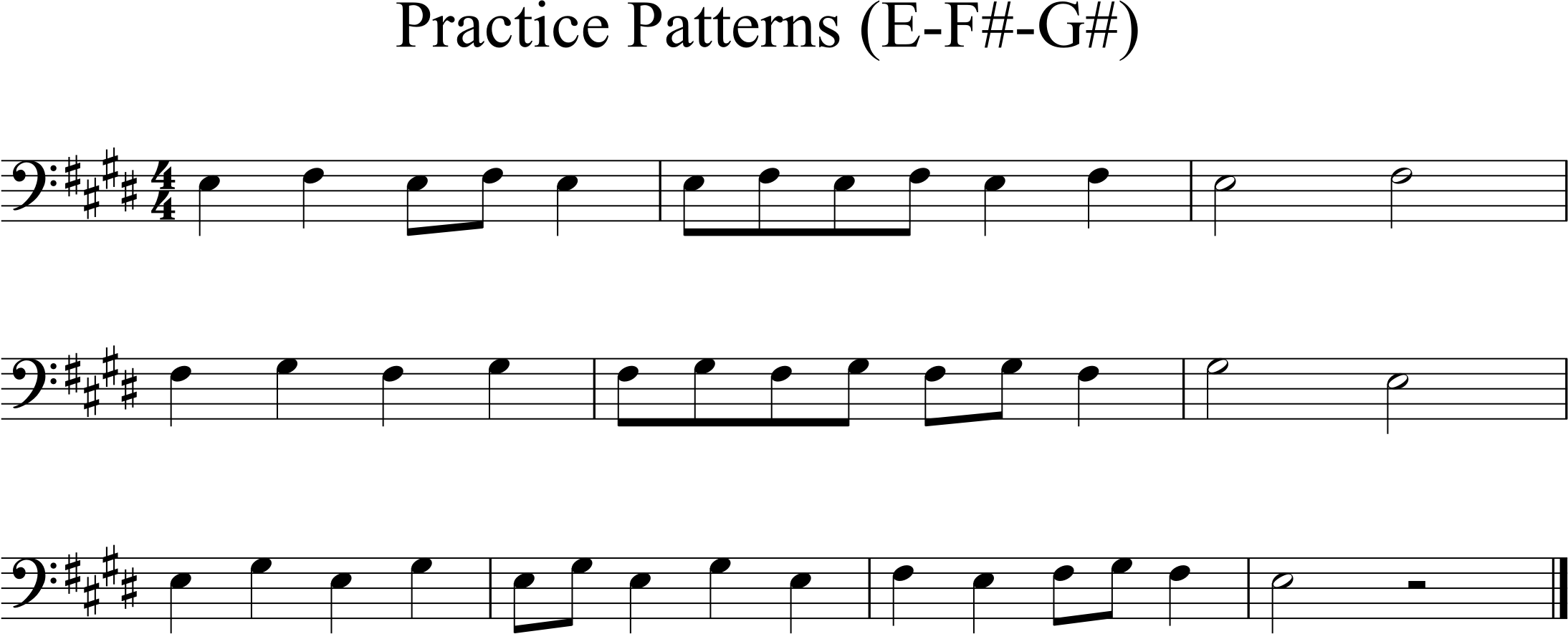The fingering for middle A-flat (top line bass staff) is almost the same as the low A-flat from lesson 6. The only difference between low A-flat and middle A-flat is the half-hole needed for middle A-flat.
- If the A-flat growls, open more of the E tone hole.
- If the A-flat squeaks or sounds really airy, open less of the E tone hole.

Matching Pitch on Ab
Half-hole Ab should be a pretty good note with intonation. Playing with a drone will show if your breath support, embouchure, and voicing are good.
If your A-flat tends to be sharp:
- Voice a low tongue vowel (hot or putt).
- Create space between your teeth and in your oral cavity (“hot pizza”)
- Cover less of the hole.
If your A-flat tends to be flat:
- Increase your breath support
- Blow more air into the bassoon
- Voice a higher vowel [‘o’ like blow, or ‘i’ like sit]
- Hug the reed just a little stronger with your lips while keeping a little space between your teeth.

Ab Octaves
Blow faster air for the upper octave and slower air for the lower octave with little to no embouchure change between these two notes. The amount of half-hole open may need to be adjusted to achieve a clear tone on Ab.

Eb Melody
Play through Eb Melody and find the tricky note patterns. Isolate and repeat the tricky spots and be sure to work slowly at first. Listen for a clear tone on the half-hole pitches.
- If a half-hole note growls, open more of the E tone hole. This is the most common issue with half-hole notes.
- If a half-hole note squeaks, open less of the E tone hole.
- Be sure to follow the slur markings in bars 11 through 14 and 25, 27, and 28.

Half-hole the Upper Octave
This exercise includes the three half-hole pitches on the bass staff. Speed up your air and adjust the amount of half-hole open as needed so the upper octaves speak with a clear and full tone. Avoid working harder with your embouchure for the upper notes.

Practice Patterns (E-F#-G#)
This exercise, in the key of E, uses two of the same notes/fingerings as the previous exercise but the A-flat is now spelled G-sharp.



Feedback/Errata